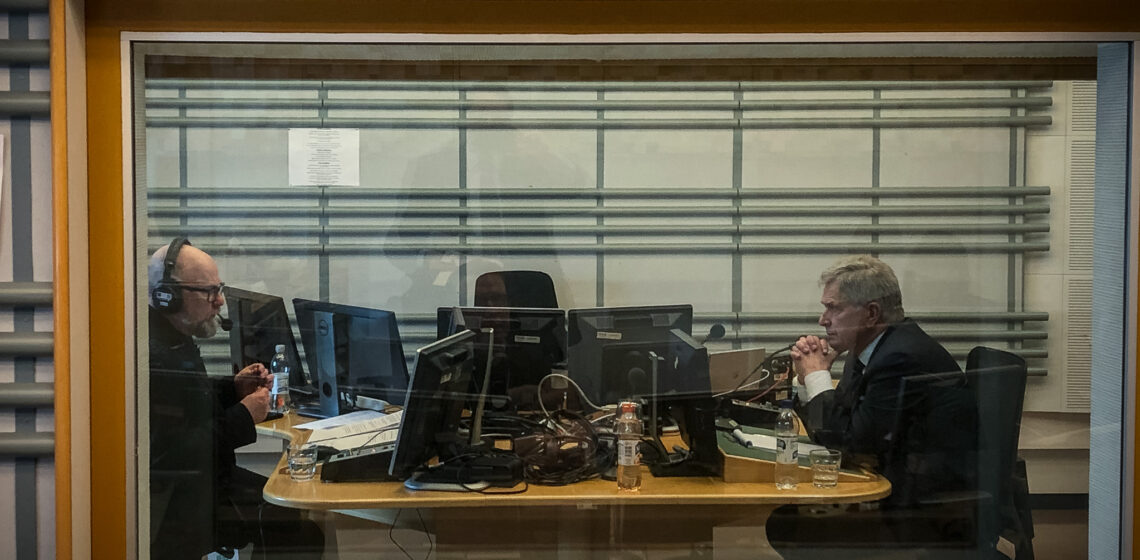What can we learn from the coronavirus pandemic? How do we restore the economy? The Kultaranta Talks attracted more than one thousand questions from the public, and President of the Republic of Finland Sauli Niinistö answered them on Yle Radio Suomi on Monday, 25 May. The topics ranged from foreign policy to the economy and communality.
At the beginning of the programme, hosted by journalist Juha Blomberg, the President was asked how the pandemic has changed personal lives. “Certainly, many people will have surprised themselves and found qualities and adapted to conditions that a few months ago they would have considered completely impossible,” said the President. Coronavirus has changed the handling of presidential duties so that electronic tools have replaced meetings, but ‘the same old topics remain’ alongside the pandemic.
How to keep the wheels of the economy turning?
The economy has been a subject of concern for citizens both personally and at the level of the welfare state and the European Union. According to President Niinistö, we must now ensure that the basic structure of economic security is maintained for ordinary people. “By that I mean the protective net of the welfare state, if you will. And then we must keep the wheels of the economy turning so that there is enough work and prosperity to share around.”
When asked about the recovery, the President pondered the actions of central banks and the amount of debt, and asked whether it was a never-ending road. “Whenever problems arise, can we always increase the money supply and also the amount of debt?”
Coronavirus will not bring about rapid changes in the economy, the President reckoned. “The second question then is whether a new pattern of behaviour will emerge and whether a new economic model will naturally evolve. I’m sure that many people in addition to the questioner will now stop and think whether all this flurry of goods is really necessary?”
Trendlines of the world order
President Niinistö stated that the position of the UN has weakened in recent decades, and the pandemic will not necessarily unite and strengthen it in the face of a ‘common enemy’. “So, as desirable as it may be that some new structure, precisely such a united front, would arise from this, it may be rather wishful thinking at this stage. But wishful thinking also has its good side, that we hold on to it. Some day it might come true.”
The pandemic will not, according to the President, change the trendlines of superpower politics, but it might accelerate matters. As China has strengthened, its dialogue with the United States has intensified, but Russia still has to focus on fighting the pandemic as oil prices fall.
What can we learn?
“Our highly developed world is not free from such threats that are very equally directed at every single person. I think this is a pretty good lesson for us all,” said the President in reply to the question what we can learn from the pandemic.
The coronavirus period has also brought some good: it has compelled us to stop for a moment and think about what is important. People have helped each other and suspicions of a decline in communality have proved to be premature. “In a tight situation we are being put to the test, and we are meeting the challenge.”
The Uusimaa movement restrictions and the recommendation that people over 70 years old remain at home led the President to observe a surprising fact. “These measures revealed in a very concrete way that if boundaries are drawn then suddenly they begin to have an impact above and beyond themselves. From this we learn that there is never any point in defining unnecessary restrictions, as this defines people very suddenly as being on this or that side of the fence. ”


